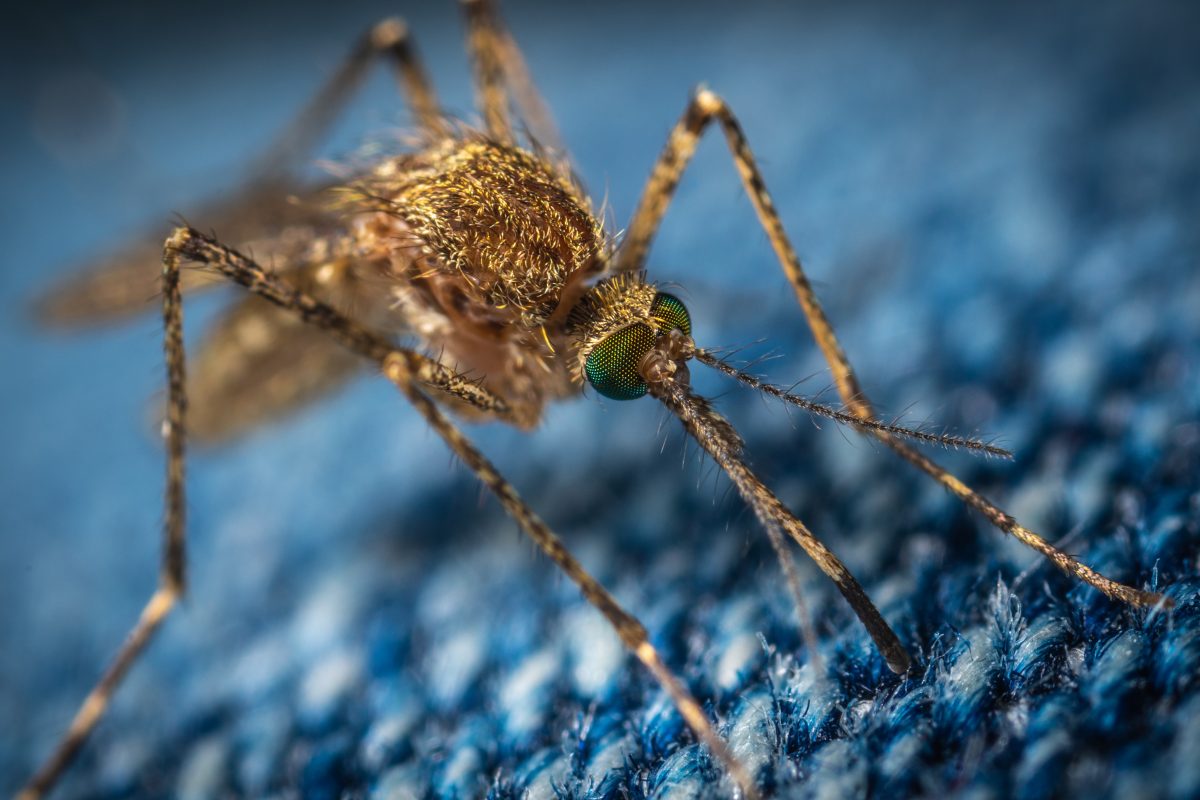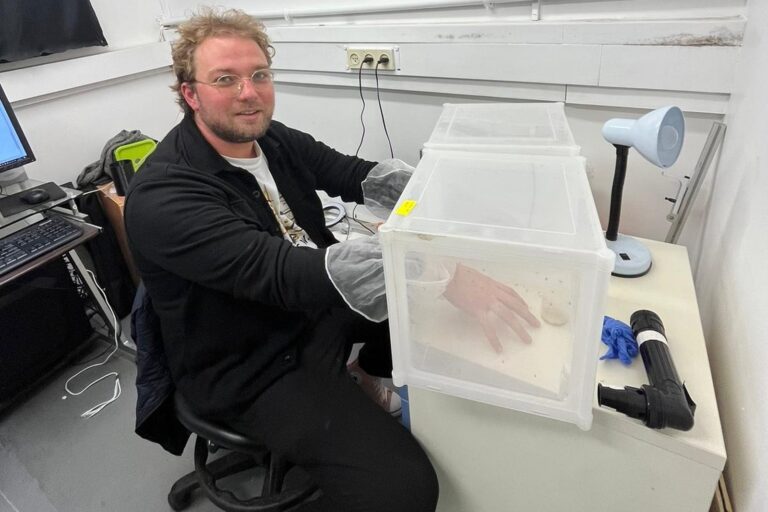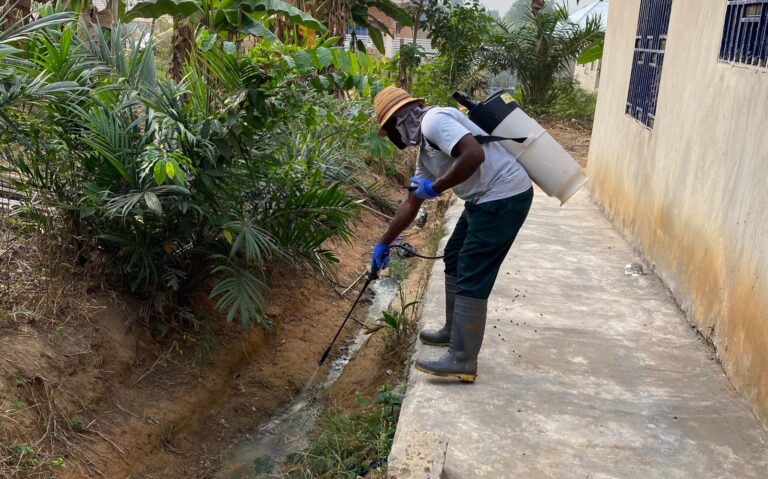
8 new weapons in the anti-mosquito arsenal
Abigail Klein Leichman via Israel21c – Cases of West Nile virus highlight the urgency of dealing with disease-carrying mosquito populations, which are only growing…
Cases of West Nile virus in areas of Israel and other countries this summer highlight the urgent need for solutions against female mosquitoes, which are the ones that bite to get blood that helps them produce eggs.
If a mosquito becomes infected with a virus from a person or animal it bites, the virus then multiplies in its body. Then the insect becomes a vector, transmitting viruses through saliva deposited when biting your skin.
The American Mosquito Control Association estimates that more than 1 million people die each year from mosquito-borne diseases including West Nile, malaria, dengue, Zika, yellow fever and more.
The US Centers for Disease Control and Prevention (CDC) predicts a rise of these diseases in many parts of North America due to the warming climate that allows mosquitoes to thrive.
Andrea Ammon, director of the European Centre for Disease Prevention and Control, said, “Europe is already seeing how climate change is creating more favorable conditions for invasive mosquitoes to spread into previously unaffected areas and infect more people with diseases such as dengue.”
Here’s an overview of ways in which Israeli scientists and entrepreneurs are working to solve this growing problem.
In the lab
A highly effective, yet natural, skin-coating repellent offering both mechanical and chemical protection is in advanced stages of development at Hebrew University.
The formula contains indole, a fragrant extract from flowers, and cellulose nanocrystals (CNC), an abundant renewable plant substance.
The project grew out of a research collaboration among PhD student Daniel Voignac from the Department of Applied Physics and Center for Nanoscience and Nanotechnology; Prof. Yossi Paltiel; Prof. Jonathan Bohbot, head of the university’s Neurobiology Of Insect Olfaction Lab; serial inventor/entrepreneur Prof. Oded Shoseyov and PhD student Evyatar Sar-Shalom.
 mosquito repellent on his own hands. Photo by Evyatar Sar-Shalom” />
mosquito repellent on his own hands. Photo by Evyatar Sar-Shalom” />
As they described last year in the journal PNAS Nexus, applying the thin CNC coating on human skin decreased the number of mosquitoes feeding by 80%.
“Combining CNCs with the mosquito repellent indole confirmed its excellent potential as safe and sustainable mosquito prevention,” said Bohbot.
Voignac tells ISRAEL21c that the group is continuing to test the product on the hands of students on campus and is gathering feedback from consumers about the smell and feel of the product before starting final formulation and regulatory approval processes.
“The paper published last year caught a lot of attention, including from industry leaders,” says Voignac. The inventors are now assessing with the university’s tech-transfer company, Yissum, the best avenue to get the product – and perhaps other related products – into the market.
Meanwhile, Prof. Philippos Aris Papathanos, head of Hebrew University’s Insect Genetics Lab, is developing new genetic approaches for controlling malaria-carrying mosquitoes.

Papathanos’ lab uses cutting-edge CRISPR technology to modify male malaria mosquitoes’ chromosomes so that they father only male babies. Each baby inherits the altered chromosome. The idea is to lessen the female mosquito population, leading to fewer disease-transmitting bites.
Click here to see his newest published paper on his lab’s experiments, which are still a few years away from proof-of-concept.
Finally, a study published in February in the Journal of Animal Ecology by University of Haifa researchers reveals the bacteria-sensing mechanism that mosquitoes use to avoid predatory fish when laying their eggs.
This finding, write researchers Nimrod Shteindel, Yoram Gerchman and Alon Silberbush, “may lead to the development of an ecologically friendly mosquito repellent.”
Targeting mosquito larvae
ZzappMalaria uses artificial intelligence to create a holistic, site-specific snapshot of mosquito-breeding conditions and analysis of those conditions to help fieldworkers manage the eradication of mosquito larvae (babies) in the detected areas.

Regarding West Nile virus, ZzappMalaria founder and CEO Arnon Houri-Yafin says Zzapp can help municipalities pinpoint mosquito breeding hotspots for better strategic planning, taking into account “people, insects and topography” and not only where cases of infection arise.
A pilot study last year showed that using Zzapp intelligence in the Central African country of São Tomé and Príncipe resulted in a 75 percent reduction in mosquito numbers, and a 52.5% decrease in malaria incidence, at a cost of 86 cents per person.

“After establishing our cost-effectiveness in that trial, our next goal is to scale up in Africa wherever it’s the best fit depending on ecology and climate,” says Houri-Yafin.
The company has also completed analyses in Mozambique and Kenya in cooperation with their governments, and will soon do so in Ghana with funding from the JDC.
Sterile insect technique
Several Israeli companies are based on sterile insect technique (SIT), where male mosquitoes are sterilized by irradiation or genetic modification. Male mosquitoes feed on nectar, not blood.
Female mosquitoes mate only once, and when they mate with a sterilized male their eggs don’t hatch. Consequently, overwhelming an area with sterile males, which compete with wild males for mates, can reduce the mosquito population by around 90% without pesticides.
Senecio Robotics developed modular BioMosquito units where millions of mosquitoes per week are produced and sex-separated. Males are sterilized by irradiation, classified, sorted and packaged using a series of patented robotic processes.
The bottled boy bugs can be released from ground or air for industrial or residential pest-control operations, using Senecio’s automated mapping technology to show where the mosquitoes are located.
Following successful pilots in Europe and the United States, Senecio has launched commercially through local distributors, starting in Israel and looking to scale abroad.
CEO Hanan Lepek says Senecio recently signed a commercial agreement with Rentokil, the world’s largest pest control service provider, making Senecio “the only company in the world that is commercially selling and distributing sterile mosquitoes with a pest control company.”
Forrest Innovations applies its safe, environmentally friendly Natural Vector Control (NVC) autonomous sterilization method to male mosquitoes collected and grown from the locality being treated.
“Local mosquitoes are better adapted to the weather conditions and to the pheromones of the local females,” says CEO Nitzan Paldi.
“Regulators are happy that we are not introducing mosquitoes from somewhere else, nor are we introducing genetically modified mosquitoes. There are no detectable residues of the components we use to sterilize them, so they are really natural mosquitoes.”
Forrest’s method successfully prevented dengue outbreaks in several projects in Brazil. The company is now operating commercially in that country and is seeking strategic partnerships to deploy NVC in the United States as well as in Africa, where urban malaria is surging.
Diptera.ai developed a system that sex-sorts insects, including mosquitoes, at the larval stage using artificial intelligence. According to cofounder Elly Ordan, Diptera.ai ran a field pilot treating the mosquito population in the Israeli town of Tzora resulting in substantial reduction of of over 90%.
“This the only solution that can work at scale for all mosquito species including malaria-spreading anophelines,” Ordan says.
Seek and swat
To avoid a good night’s sleep getting interrupted by buzzing, biting mosquitoes, options include chemical plugins, electronic bug zappers and topical repellents.
Israeli company Bzigo offers a rechargeable AI vision device, Bzigo Iris, that detects and spotlights mosquitoes in a room, even in the dark, directing a low-powered laser beam at the bug’s location to make it simple for a human to find and swat.
The user also receives an alert via smartphone when a mosquito is located nearby. While Bzigo Iris doesn’t do the killing, it’s nontoxic, odorless and pet-safe.
To read the original article click here.






